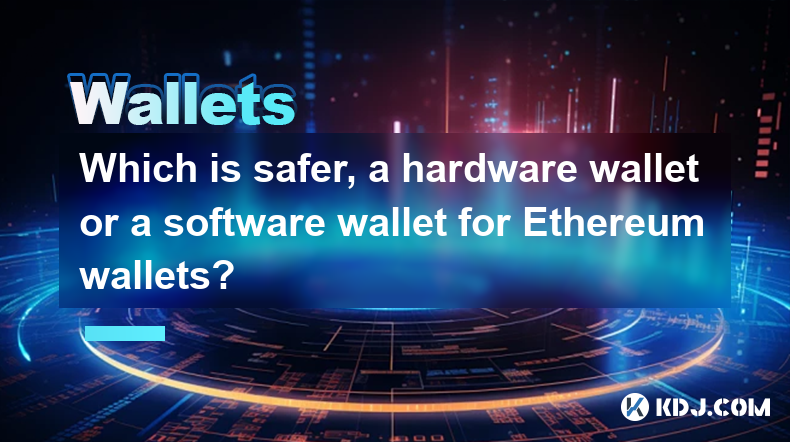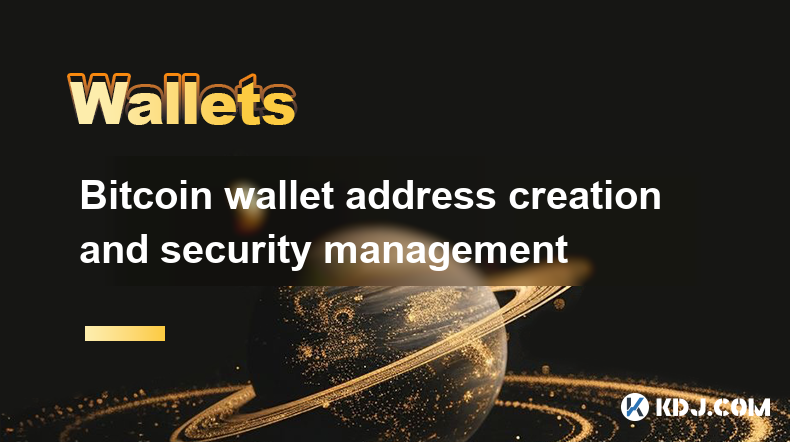-
 Bitcoin
Bitcoin $82,683.4967
0.78% -
 Ethereum
Ethereum $1,829.2967
1.42% -
 Tether USDt
Tether USDt $0.9999
-0.02% -
 XRP
XRP $2.0967
-0.75% -
 BNB
BNB $606.5472
1.02% -
 Solana
Solana $125.0276
0.61% -
 USDC
USDC $1.0000
-0.01% -
 Dogecoin
Dogecoin $0.1676
0.95% -
 Cardano
Cardano $0.6650
1.26% -
 TRON
TRON $0.2382
2.59% -
 Toncoin
Toncoin $4.1025
5.56% -
 Chainlink
Chainlink $13.5754
1.83% -
 UNUS SED LEO
UNUS SED LEO $9.1395
0.29% -
 Stellar
Stellar $0.2651
-0.15% -
 Avalanche
Avalanche $18.8485
0.75% -
 Shiba Inu
Shiba Inu $0.0...01250
0.76% -
 Sui
Sui $2.2808
-1.77% -
 Hedera
Hedera $0.1640
-1.56% -
 Polkadot
Polkadot $4.0427
0.61% -
 Litecoin
Litecoin $83.3594
-2.70% -
 MANTRA
MANTRA $6.2703
0.56% -
 Bitcoin Cash
Bitcoin Cash $304.1339
1.64% -
 Bitget Token
Bitget Token $4.5229
-1.25% -
 Dai
Dai $0.9999
-0.02% -
 Ethena USDe
Ethena USDe $0.9998
-0.03% -
 Pi
Pi $0.7229
-6.19% -
 Hyperliquid
Hyperliquid $13.0555
5.79% -
 Monero
Monero $215.2463
-1.28% -
 Uniswap
Uniswap $6.0107
2.74% -
 Aptos
Aptos $5.2988
0.53%
Which is safer, a hardware wallet or a software wallet for Ethereum wallets?
Hardware wallets offer superior security for Ethereum, storing private keys offline and preventing common hacks, unlike vulnerable software wallets. The choice depends on your risk tolerance and technical skills; significant holdings warrant the extra security of a hardware wallet.
Mar 25, 2025 at 04:35 am

Key Points:
- Hardware wallets offer significantly greater security than software wallets due to their offline nature.
- Software wallets are more convenient but expose your private keys to potential vulnerabilities.
- The choice between a hardware and software wallet depends on your risk tolerance and technical expertise.
- Both hardware and software wallets have their own security protocols, but hardware wallets are generally considered the gold standard for security.
- Understanding the risks associated with each type of wallet is crucial before choosing one for your Ethereum holdings.
Which is safer, a hardware wallet or a software wallet for Ethereum wallets?
The question of hardware versus software wallets for Ethereum is a crucial one for anyone holding significant amounts of ETH. Both offer ways to store your private keys, which are essential for accessing your cryptocurrency, but they differ dramatically in their security approach. The core difference lies in where your private keys are stored and how they interact with the outside world.
Hardware wallets, like Ledger and Trezor, are physical devices that store your private keys offline. This offline storage is the key to their superior security. Because your keys never leave the device, they are immune to most common forms of hacking, such as malware, phishing attacks, and remote access Trojans. The device itself is designed with robust security features to prevent unauthorized access.
Software wallets, on the other hand, store your private keys on your computer, smartphone, or other digital device. This makes them inherently more vulnerable. Malware, viruses, or a compromised operating system can expose your private keys, leading to the theft of your Ethereum. Even seemingly secure software wallets are susceptible to sophisticated hacking techniques.
The security difference stems from the fundamental principle of keeping your private keys away from potential threats. A hardware wallet achieves this by isolating the keys entirely from the internet and other connected devices. A software wallet, by its very nature, requires interaction with a network, inherently increasing the risk of exposure.
Consider the scenario of a phishing attack. A hardware wallet requires physical access to the device and its PIN code to authorize transactions. A software wallet, however, can be compromised through a malicious link or a deceptive email, potentially leading to the immediate transfer of your funds.
The level of security also depends on the specific wallet. Not all hardware wallets are created equal, and neither are software wallets. Some hardware wallets have better security features than others. Similarly, some software wallets employ robust encryption and security protocols, but these are still less secure than the inherent isolation provided by a hardware wallet.
The convenience factor is where software wallets often win. They are typically easier to set up and use, often integrating seamlessly with various cryptocurrency exchanges and platforms. This ease of use, however, comes at the cost of security. Hardware wallets, while more secure, require a bit more technical knowledge and patience to set up and use effectively.
Setting up a hardware wallet generally involves:
- Unboxing the device and connecting it to your computer.
- Downloading the manufacturer's software and following the on-screen instructions.
- Creating a PIN code and a recovery phrase (crucial for recovery in case of device loss or damage).
- Transferring your Ethereum from your exchange or another wallet to your new hardware wallet address.
Setting up a software wallet is usually simpler:
- Downloading the wallet software from a trusted source.
- Creating a new wallet or importing an existing one.
- Backing up your recovery phrase.
- Receiving your Ethereum to your new software wallet address.
Choosing between a hardware and software wallet involves weighing security against convenience. If you have a substantial amount of Ethereum, the enhanced security of a hardware wallet is generally recommended, despite the slightly steeper learning curve. For smaller amounts or users comfortable with the inherent risks, a reputable software wallet with strong security features might suffice.
Frequently Asked Questions:
Q: Can a hardware wallet be hacked? While highly resistant, hardware wallets are not entirely unhackable. Sophisticated attacks, physical theft, or exploiting vulnerabilities in the device's firmware are potential, albeit rare, scenarios. However, they are significantly more secure than software wallets.
Q: Are all software wallets equally insecure? No. Some software wallets employ advanced encryption and security measures, making them relatively safer than others. However, they are still inherently more vulnerable than hardware wallets due to their online nature.
Q: What if I lose my hardware wallet? This is why the recovery phrase is crucial. It allows you to restore access to your Ethereum on a new device, provided you have securely stored your recovery phrase.
Q: What if I lose my software wallet's recovery phrase? Without the recovery phrase, your Ethereum will be irretrievably lost. This highlights the importance of securely backing up your recovery phrase.
Q: Which hardware wallet is the best? There is no single "best" hardware wallet. Popular and reputable options include Ledger and Trezor, both offering strong security features. The choice often comes down to personal preference and specific features.
Q: Are there any free, secure software wallets? Free software wallets exist, but their security may be compromised. Paid options often offer superior security features and better support. Always research thoroughly before using any software wallet.
Disclaimer:info@kdj.com
The information provided is not trading advice. kdj.com does not assume any responsibility for any investments made based on the information provided in this article. Cryptocurrencies are highly volatile and it is highly recommended that you invest with caution after thorough research!
If you believe that the content used on this website infringes your copyright, please contact us immediately (info@kdj.com) and we will delete it promptly.
- Bitcoin (BTC) price dips below ascending channel pattern as whales mirror a 2020 bull run signal
- 2025-04-01 07:50:12
- Mutuum Finance (MUTM) Has Been Relatively Quiet, But It's Building Fast
- 2025-04-01 07:50:12
- Cardano (ADA) Gains 4% This Week, Trading at $0.74 as Bullish Pressure Builds
- 2025-04-01 07:45:12
- Elon Musk Quashes Rumors of U.S. Government Using Dogecoin (DOGE) in Any Kind of Operations
- 2025-04-01 07:45:12
- Ethereum (ETH) and Solana (SOL) Prices Could Plunge as FTX Begins Creditor Repayments on May 30
- 2025-04-01 07:40:12
- Acting SEC Chair Rejects Enforcement, First US Bank-Issued Stablecoin, Bitcoin's Four-Year Cycle at Crossroads
- 2025-04-01 07:40:12
Related knowledge

Bitcoin wallet address creation and security management
Mar 31,2025 at 10:56pm
Understanding Bitcoin Wallet AddressesA Bitcoin wallet doesn't store Bitcoin directly. Instead, it stores private keys which are long strings of characters. These keys grant access to your Bitcoin. Your public key, derived from the private key, is used to generate your Bitcoin wallet address, a unique identifier similar to a bank account number. This a...

How to easily generate a Bitcoin payment address
Mar 29,2025 at 10:49am
Generating a Bitcoin payment address might seem daunting, but it's actually quite straightforward. This process is crucial for receiving Bitcoin, as each transaction requires a unique address. Understanding how this works is fundamental to using Bitcoin effectively. This guide will walk you through the simple steps, regardless of your technical experti...

Bitcoin address creation steps and common problems
Mar 30,2025 at 06:07am
Understanding Bitcoin AddressesA Bitcoin address is a unique identifier, similar to a bank account number, used to receive Bitcoin. It's a string of alphanumeric characters generated from a public key, derived from your private key. Understanding the distinction between public and private keys is crucial for Bitcoin security. Your private key should be...

How to make your own Bitcoin wallet address
Mar 29,2025 at 08:42pm
Creating your own Bitcoin wallet address is crucial for securing and managing your Bitcoin holdings. It allows you to independently receive and send Bitcoin without relying on third-party services. This process involves understanding the different types of wallets and choosing the one that best suits your needs and technical expertise. Incorrectly gene...

How to generate a secure Bitcoin wallet address
Apr 01,2025 at 03:14am
Understanding Bitcoin Wallet AddressesA Bitcoin wallet doesn't actually store your Bitcoin. Instead, it stores your private keys, which are long strings of characters that grant you access to your Bitcoin. Your public key, derived from your private key, is used to generate your Bitcoin address, a unique identifier similar to a bank account number. This...

Bitcoin wallet address creation and use tutorial
Mar 29,2025 at 10:14pm
Understanding Bitcoin Wallet AddressesA Bitcoin wallet doesn't store Bitcoin in the way a traditional bank account does. Instead, it stores private keys, which are cryptographic secrets allowing you to access and spend your Bitcoin. Your Bitcoin address, on the other hand, is a public identifier, like an email address, that others can use to send you B...

Bitcoin wallet address creation and security management
Mar 31,2025 at 10:56pm
Understanding Bitcoin Wallet AddressesA Bitcoin wallet doesn't store Bitcoin directly. Instead, it stores private keys which are long strings of characters. These keys grant access to your Bitcoin. Your public key, derived from the private key, is used to generate your Bitcoin wallet address, a unique identifier similar to a bank account number. This a...

How to easily generate a Bitcoin payment address
Mar 29,2025 at 10:49am
Generating a Bitcoin payment address might seem daunting, but it's actually quite straightforward. This process is crucial for receiving Bitcoin, as each transaction requires a unique address. Understanding how this works is fundamental to using Bitcoin effectively. This guide will walk you through the simple steps, regardless of your technical experti...

Bitcoin address creation steps and common problems
Mar 30,2025 at 06:07am
Understanding Bitcoin AddressesA Bitcoin address is a unique identifier, similar to a bank account number, used to receive Bitcoin. It's a string of alphanumeric characters generated from a public key, derived from your private key. Understanding the distinction between public and private keys is crucial for Bitcoin security. Your private key should be...

How to make your own Bitcoin wallet address
Mar 29,2025 at 08:42pm
Creating your own Bitcoin wallet address is crucial for securing and managing your Bitcoin holdings. It allows you to independently receive and send Bitcoin without relying on third-party services. This process involves understanding the different types of wallets and choosing the one that best suits your needs and technical expertise. Incorrectly gene...

How to generate a secure Bitcoin wallet address
Apr 01,2025 at 03:14am
Understanding Bitcoin Wallet AddressesA Bitcoin wallet doesn't actually store your Bitcoin. Instead, it stores your private keys, which are long strings of characters that grant you access to your Bitcoin. Your public key, derived from your private key, is used to generate your Bitcoin address, a unique identifier similar to a bank account number. This...

Bitcoin wallet address creation and use tutorial
Mar 29,2025 at 10:14pm
Understanding Bitcoin Wallet AddressesA Bitcoin wallet doesn't store Bitcoin in the way a traditional bank account does. Instead, it stores private keys, which are cryptographic secrets allowing you to access and spend your Bitcoin. Your Bitcoin address, on the other hand, is a public identifier, like an email address, that others can use to send you B...
See all articles























































































